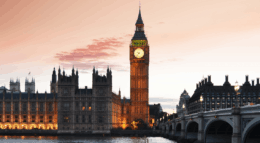
Beware the threat of ‘The Shared Society’
While sometimes necessary, state intervention such as that prescribed by the Prime Minister over the weekend is not without its risks. If left unfettered, state bureaucracy can threaten individual freedom, argues Peter Bingle.
During the terrible 2010 Tory election campaign David Cameron launched his big idea – The Big Society. It was clear from the launch that nobody including Dave had the faintest idea was the Big Society was let alone what policies would be necessary to make it a reality.
It is therefore completely understandable that the PM's launching of her big idea – 'The Shared Society' – has been met with a large dose of very healthy scepticism. Every PM wants to define themselves, so as long as the idea is harmless does it really matter?
Yet there is a political justification for what the PM is trying to define and achieve, as long as it is acknowledged from the start that this is a time limited idea which needs to have very clear goals and a very specific policy agenda.
I have always believed that the state is intrinsically bad. Giving power to faceless bureaucrats and taking away power from individuals cannot be benign, particularly for those of us on the right of the political spectrum. In the end bureaucracy is self-serving. It has no regard for customers or individual citizens. Unfettered it is a threat to individual freedom.
Yet there are instances when state involvement can be justified. There are instances in the private sector where competition is a fiction. In such circumstances the state has a compelling right to intervene to break up monopoly power. There is also an argument to support positive discrimination when the status quo is unable to deal with unacceptable unfairness. Why, for example, have governments of all political persuasions failed to create a black middle class with role models who are doctors, lawyers and businessmen rather than athletes, footballers and pop stars? Why have governments allowed so many citizens to live in such unacceptably bad large council estates? I could go on …
That said, the Tory instinct remains that increasing the power of the state (regardless of the laudable objectives behind the move) is something which should be opposed. So why is a Tory PM proposing to do just that?
It is a fact that the years of Cameron and Osborne were a wasted opportunity when it came to social mobility and making Britain a fairer and more equal society. They never understood what it is like to be poor but ambitious. They were unable to escape their class. The two last politicians of any political party to do so were Thatcher and Tebbit. A delicious irony.
The Brexit vote revealed the UK to be a country deeply ill at ease with itself. The vote to leave the EU was a vote to reject the power of the liberal metropolitan elite. It was also a scream of anger and a cry of despair. The Shared Society is the PM's attempt to respond to a ill tempered and angry electorate who have had enough.
If the 'Shared Society' ensures that people are better housed, children are better educated, old people are better cared for and the mentally ill are treated with dignity then there is a case for it. The proviso is that the PM and her brain Nick Timothy must set out very clearly what the key objectives are and a timetable to achieve them.
People who are having a tough time through no fault of their own need and deserve help to turn around their situation. In this transitional period there is a temporary role for the state. Once people are back on their own two feet, however, the last thing they want is to be shackled by the state. This is the inherent contradiction within the concept of the 'Shared Society'.
So two cheers mixed with a real worry that the PM having unleashed increased state power will never again be able to reign it back in.












